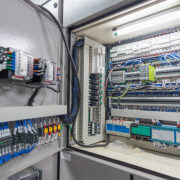
Andrew Barnett has an extensive entrepreneurial background in several industries. Throughout his work tenure, he has worked with several reputed companies all across the world. He worked at Apple in the position of RMI Engineer.
He has developed data recovery software on SCSI devices. Later, he entered into a government contract and started offering consultation on computer hardware and software. To know more about him and his business, click here to view his Crunchbase profile.
Types of Due Diligence
In this process, the buyer performs the task to verify the precision of the claims of the seller. A potential merger and accusation deal comprise of various kinds of due diligence. This is an extensive process performed by an acquiring company to evaluate the business assets, capabilities, and financial performance of the company.
This process is performed in four major types as follows.
Administrative DD
Administrative DD that involves validating admin-related items includes occupancy rate, facilities, number of workstations, etc. The main idea is to confirm the facilities owned by the seller and find out whether or not the costs of operation are considered in forming the financial data of the business.
Financial DD
This type of due diligence process helps to find out the accuracy of the finances shown in the Confidentiality Information Memorandum. It provides a thorough understanding of the financials of the company. It involves an examination of key customer accounts, variable and fixed analysis of costs and profit margins, and evaluation of internal control procedures.
Asset DD
Asset due diligence process reports about the comprehensive schedule of fixed assets as well as their locations. It takes into consideration rental agreements for equipment, a purchase, and sales schedule of equipment during the past 3 to 5 years, mortgages, real estate deeds, use of licenses, and title policies.
Human Resources DD
This type of due diligence comprises of the following:
- Analysis of current vacancies of employees, their serving notice period
- Evaluation of the salaries of employees, and bonuses paid in the past three years
- HR policies related to yearly sick leave, and other types of leaves
- Evaluation of employee issues, that includes illegal termination, discrimination, harassment, and legal cases with former, or current employees
- The financial impact of labour disputes, pending grievance procedures, and requests for arbitration
- Description of all employee welfare insurance policies and health benefits
- ESOPs
- Schedule of grants
Conclusion
Due diligence is considered to be a vital and lengthy procedure in an M&A contract. It makes a business well-informed about various financial aspects of a business. This ensures the smooth and effective execution of the contract proceedings.










